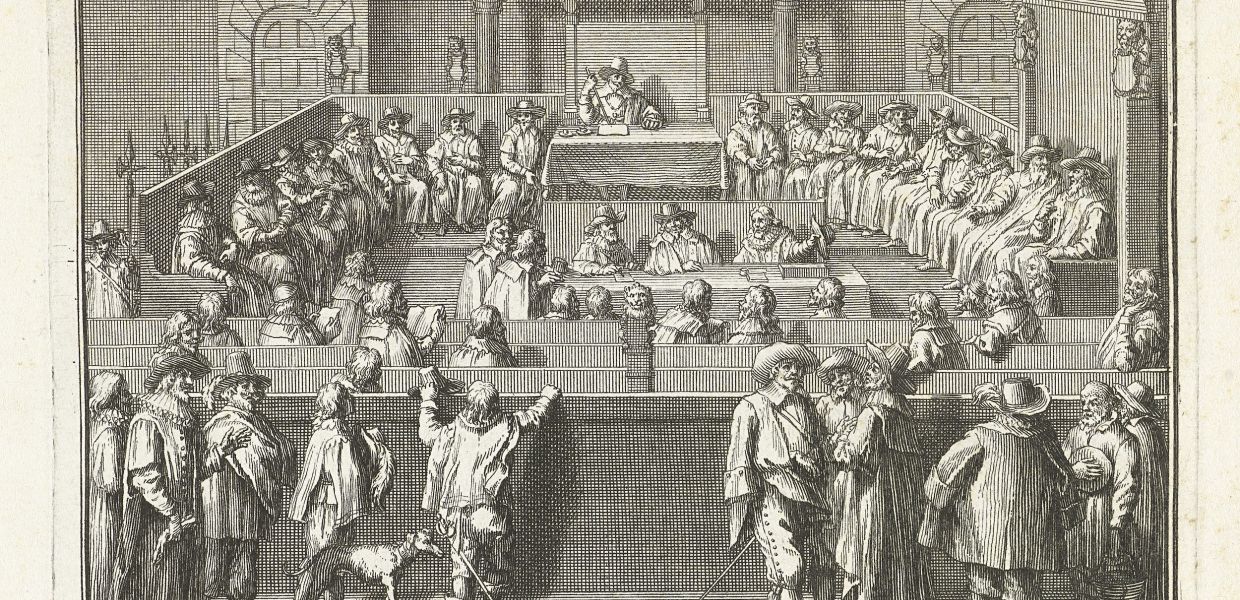Europeana represents Cultural Heritage Institutions at EU roundtable on copyright

- Title:
- Frederik Hendrik neemt als stadhouder zitting in de Staten van Holland, 1625.
- Institution:
- Rijksmuseum
- Copyright:
- Public Domain
Europeana Foundation were invited to join a roundtable discussion on EU copyright reform hosted by MEP Oettinger on 19th February. The roundtable discussed the online access to knowledge and heritage through libraries, education, film, museums, and archives. Executive Director, Jill Cousins attended, representing the 3,337 individual museums, libraries, archives and audio visual institutions who contribute data to Europeana and the 1700 active Europeana Network members.
Read the intervention presented by Europeana here:
Our position on copyright reform is endorsed by the associations who are members of the Europeana Foundation Board: ICOM Europe, EMA, EMF, NEMO, MICHAEL, EURBICA, IASA, CENL, LIBER, CERL, NAPLE, ACE, FIAT, Euroclio.
The shift from analogue to digital represents a dramatic change in how Cultural Heritage Institutions are preserving and providing access to their collections. This is an irreversible process and the public increasingly expects collections to be available online on platforms they use.
Cultural Heritage Institutions across Europe are digitising their collections so they can share them online. Much of this material was never formally published, so there is no infringement of others business models. Cultural Heritage Institutions need the legal space to do their work without always having to negotiate with copyright holders who are often impossible or prohibitively costly to find.
The current copyright rules have not been made with this situation in mind and for this reason we would like to see reforms to copyright focussing on the following points:
- Copyright rules need to provide more room, and greater certainty for Europe’s Cultural Heritage Institutions to make collections available online
- Cultural Heritage Institutions should be allowed to make available online, for non-commercial use, those works from their collections that are no longer available via commercial channels, or are not otherwise actively managed by their rights holders
- The exceptions benefitting Cultural Heritage Institutions ought to be fully harmonised and made mandatory across Europe.
This requires an update of the exceptions in the InfoSoc directive benefitting libraries, archives and museums:
- The existing reproduction exception should be updated to allow for all acts of reproduction of works in the collections of beneficiary institutions as long as they are not for direct commercial advantage
- The existing private consultation exception should be expanded to allow online access to those works in the collections of Cultural Heritage Institutions not anymore available via commercial channels, or that are not actively managed by their rights holders.
We believe that by limiting the ability to provide online access to works that are no longer in commercial circulation (including available for licensing via collecting societies) the activities of cultural heritage institutions enabled by an expanded exception would be complementary to those of creators, publishers and other rights holders. There is no interference by cultural heritage institutions in the primary exploitation of new works, which remain the exclusive prerogative of rights holders. Nor would remuneration of the rights holder be precluded consequent to publication.

